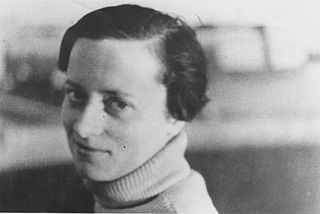
Gabriel Tarde was a French sociologist,criminologist and social psychologist who conceived sociology as based on small psychological interactions among individuals,the fundamental forces being imitation and innovation.

François Joseph Charles Simiand was a French sociologist and economist best known as a participant in the Année Sociologique. As a member of the French Historical School of economics,Simiand predicated a rigorous factual and statistical basis for theoretical models and policies. His contribution to French social science was recognized in 1931 when,at the age of 58,he was elected to the faculty of the Collège de France and accepted the chair in labor history.
Social representations are a system of values,ideas,metaphors,beliefs,and practices that serve to establish social order,orient participants and enable communication among the members of groups and communities. Social representation theory is a body of theory within social psychology and sociological social psychology. It has parallels in sociological theorizing such as social constructionism and symbolic interactionism,and is similar in some ways to mass consensus and discursive psychology.

Serge Moscovici,born Srul HerşMoscovici,was a Romanian-born French social psychologist,director of the Laboratoire Européen de Psychologie Sociale,which he co-founded in 1974 at the Maison des sciences de l'homme in Paris. He was a member of the European Academy of Sciences and Arts and Officer of the Légion d'honneur,as well as a member of the Russian Academy of Sciences and honorary member of the Hungarian Academy of Sciences. Moscovici's son,Pierre Moscovici,was European Commissioner for Economic and Financial Affairs,Taxation and Customs.
Ivana Marková FBA is a Czech born social psychologist known for her work on language and the constructs of communication.

Henri Paul Hyacinthe Wallon was a French philosopher,psychologist,neuropsychiatrist,teacher,and politician. He was the grandson of the historian and statesman Henri-Alexandre Wallon.

Henri Tajfel was a Polish social psychologist,best known for his pioneering work on the cognitive aspects of prejudice and social identity theory,as well as being one of the founders of the European Association of Experimental Social Psychology.
Sandra Jovchelovitch,is a Brazilian born social psychologist,currently Professor of Social Psychology and Director of the MSc program in Social and Cultural Psychology at the Institute of Social Psychology at the London School of Economics (LSE),of which she has served as head since August 2007. Dr. Jovchelovitch is co-editor of the Journal of Community and Applied Social Psychology and directs a book series on Contemporary Social Psychology for the Brazilian publishing house Vozes. She also serves on the editorial boards of the European Journal of Social Psychology and Psicologia e Sociedade. She has held appointments at the Maison de Sciences de l'Homme,under the auspices of CNPq and also teaches regularly in Brazil,being on the faculty of the Federal University of Rio Grande do Sul (UFRGS).

Wolfgang Wagner is an Austrian social psychologist,currently professor at the Department of Psychology at the University of Tartu,Estonia. Formerly he was at the Johannes Kepler University in Linz,Austria,and affiliated with the Department of Social Psychology and Methodology at the University of San Sebastián,Spain. He is renowned for his contributions to the Theory of Social Representations.
Cognitive polyphasia is where different kinds of knowledge,possessing different rationalities live side by side in the same individual or collective. From Greek:polloi "many",phasis "appearance".
Jorge Vala,PhD in social psychology,University of Louvain,was a full professor at ISCTE - Lisbon University Institute,and is currently a researcher at the Institute of Social Sciences (ICS)/University of Lisbon.
Roosje (Roos) Vonk is a Dutch professor of social psychology at the Radboud University in Nijmegen author,and motivational speaker.
Jean-Claude Abric was a French psychologist,professor in social psychology and the former head of the Social Psychology Laboratory at the University of Aix-Marseille.
Saadi Lahlou is Professor in Social Psychology,in the Department of Psychological and Behavioural Science at the London School of Economics. He conducts and publishes research in the areas of social psychology,consumer behaviour,survey and forecast methods,lexical analysis,cognition and design. He is the Director of the Paris Institute for Advanced Study
Collective representations are concepts,ideas,categories and beliefs that do not belong to isolated individuals,but are instead the product of a social collectivity. Durkheim originated the term collective representations to emphasise the way that many of the categories of everyday use–space,time,class,number etc–were in fact the product of collective social life:“Collective representations are the result of an immense co-operation,which stretches not only into space but into time as well”. Collective representations are generally slow-changing and backed by social authority,and can be seen as the product of self-referencing institutions.
Irène Deliège was a Belgian musician and cognitive scientist. She was born in January 1933 in Flanders,but spent most of her life in French-speaking Brussels and Liège,Belgium. She was noted for her theory of Cue Abstraction,and for her work in establishing the European Society for the Cognitive Sciences of Music. She died on 11th May 2024 in Brussels.

Denise Paulme (1909–1998) was a French Africanist and anthropologist. Her role in African literary studies,particularly in regards to the importance of Berber literature,was described as "pivotal".
Social cryptomnesia is a psychological and sociological idea. It is a cognitive bias experienced by entire cultures following social change.
Robert Maclaughlin Farr was a social psychologist from Northern Ireland who played an important role in promoting and developing social representation theory.
Willem Doise was a Belgian academic and social psychologist.






